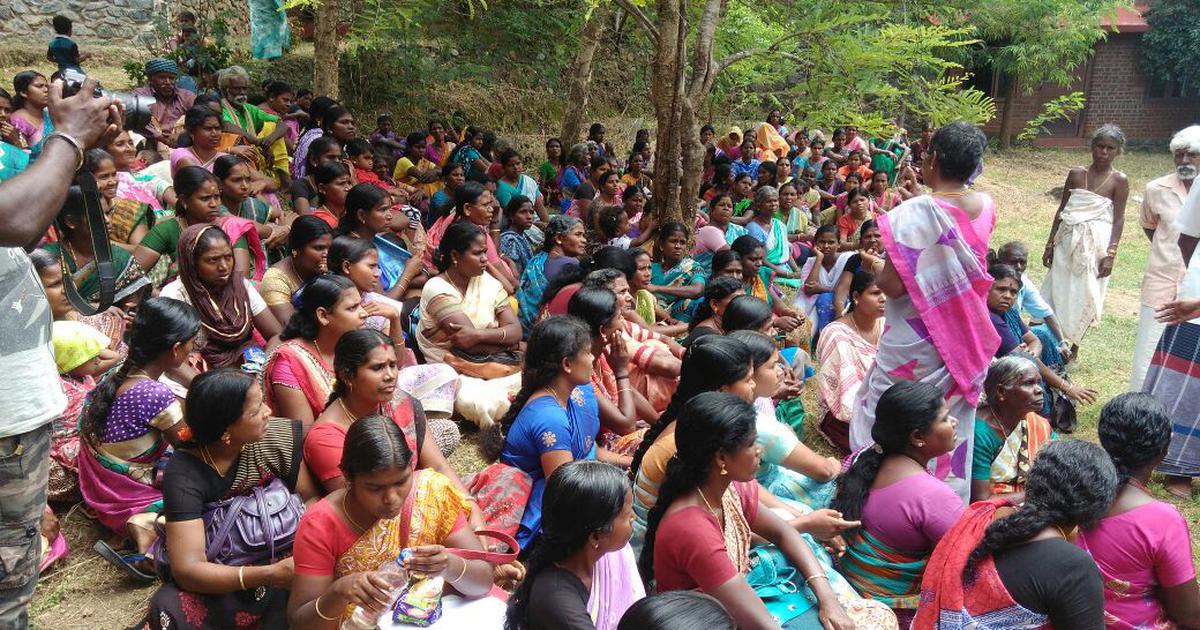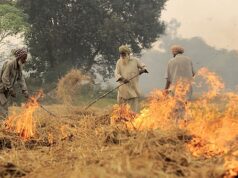The Tribal Block of Attappady
Attappady is a tribal block in Kerala that has received wide national attention for its poor socio-economic indicators including high infant mortality rates. Having an area of 735 km2 the block is as large as a district and has a diverse geography and population. According to the 2011 Census, 30,460 tribal people and 34,473 non-tribal people call Attappady their home. The tribal groups comprise mainly the Irula, the Kurumba, and the Muduga communities.
The tribal development activities in the region are coordinated through the Integrated Tribal Development Project which works as part of the Scheduled Tribe Development Department, Government of Kerala.
A casual visit to Attappady will make one aware of the large presence of the government machinery that, to achieve its goal of bringing development to tribal communities, constantly interferes in every matter of life from providing cooked meals through community kitchens to banning sales of alcohol in the region. Even after crores of rupees spent in multiple schemes managed by various departments every year, the region remains backward.
The Paternalistic State in Action
Friedrich Hayek in his essay “The Use of Knowledge in Society” suggests that the most important problem of central planning is that governments cannot have all the knowledge but it is in the form of “dispersed bits of incomplete and frequently contradictory knowledge which all the separate individuals possess”.
Consider the case of the community kitchens which was a flagship initiative of the Government of Kerala to provide cooked food for the tribal community in Attappady. Studies point out that the intervention shifted food habits from traditional items such as millet to products bureaucrats picked such as rice. Attappady has for a long time farmed and consumed millets and this shift in diet meant that the nutritional intake was reduced thereby negatively impacting the health of the community.
Also, with centrally planned public distribution systems and community kitchens, there was no local demand for millet, and the livelihood of numerous millet farmers in Attappady was directly affected. This led to a decline in millet production which ironically the government plans to rejuvenate through a separate millet village scheme.
Healthcare is another area where government planning has failed. Even when healthcare services are provided for free and those seeking healthcare at government establishments receive monetary compensation (ideally you are given money if you go to a hospital), the community is still reluctant to approach formal healthcare institutions. An important reason for this is that government healthcare systems have been forced on the people from outside and neglected the traditional practices followed by the community. For instance, as per local customs, a baby should be delivered by a mother within their hamlets as people believe this is necessary for the baby to receive the blessings of their ancestors. Though it may be scientifically unsound, rejecting it outright by maligning the system altogether and forcing pregnant mothers to come to hospitals for delivery has created distrust among the population. A better approach to tribal healthcare has been followed by the Tribal Health Initiative in Sittilingi, Tamil Nadu wherein local and traditional knowledge has been integrated into modern medicine.
Another instance of government planning in Attappady going haywire is the case of the alcohol ban in the region. Framed as a policy that would solve the menace of alcoholism, Attappady was made a no-liquor zone in 1996. While the intention of the centrally planned policy was good, the outcomes turned out to be counter-productive in the long run. Attappady experienced an increase in the supply of illicit liquor immediately following the ban as the demand for alcohol continued unabated. To tackle the illicit liquor network, the government spent even more resources as a large contingent of excise personnel had to be placed in the region. Furthermore, as the ban did not apply to the region bordering Attappady, people travelled every evening to Anakkatti in neighbouring Tamil Nadu to purchase alcohol. Thus the ban directly led to people consuming illicit liquor supplied by a newly formed network of bootleggers or having to travel large distances, the excess money spent impoverished the community further.
Village Councils for More Freedom
Similar to many tribal communities in the country, land alienation, social exclusion, and logistical and geographical impediments have meant tribal communities in Attappady lag behind other sections of society in Kerala. However, this does not mean that the community is incapable of making informed decisions for themselves. When the government prescribes to people what they should and should not do, they are denying the freedoms and local knowledge of the people.
Economist Ludwig von Mises asserts that as soon as one starts to restrict freedom, “one enters upon a decline on which it is difficult to stop”. Intending to bring development to Attappady, central planning by the government without considering local and individual choices has fallen into this decline which has done more harm than good.
Attappady traditionally had a hamlet-level governance system called Oorukoottam (Village Council) headed by the Oorumoopan (Village Head) where various people in the hamlet could deliberate and develop solutions for local problems. Studies have pointed out that these traditional committees became insignificant as the government took decisions on their own without consulting them.
Moving forward, the government machinery must step back from planning development in Attappady and give space for people to develop their solutions based on their individual choices and preferences. The first step the government can take is to empower and divulge powers to Oorukoottams so that society can be given a chance to solve their problems wherever possible. The government’s primary role should be to ensure that tribal lands are protected (there are numerous cases where protected lands are illegally sold), the law and order system is maintained, and intervene only when there are serious market failures.
Post Disclaimer
The opinions expressed in this essay are those of the authors. They do not purport to reflect the opinions or views of CCS.






